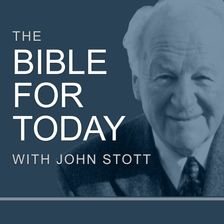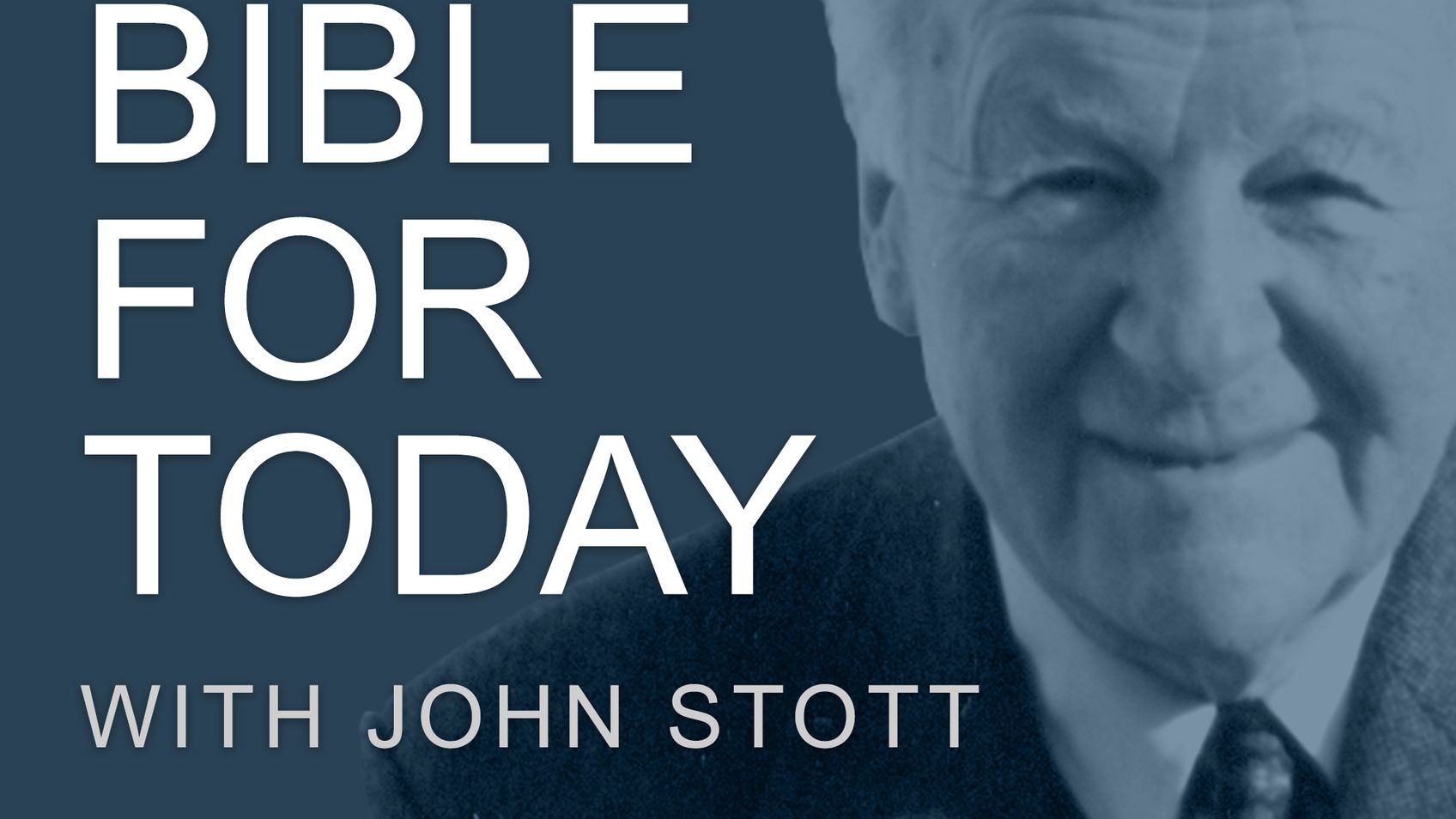The Cross and God - Part 1
June 6, 2021

The Bible for Today with John StottPremier
John Stott shows how that the cross of Christ is not only a deed done for us but a word spoken to us. The cross demonstrates God's love to us despite our being completely undeserving of it.
More From The Bible for Today with John Stott

The Cross and God - Part 2
The Bible for Today with John Stott
June 13, 2021
John Stott explains that God's love is shown to us by the action he took in giving the most valuable gift possible in the person of His son Jesus.

The Bible; Trustworthy or Fallible? - Part 1
The Bible for Today with John Stott
June 20, 2021
John Stott shows that in a world of relativism there is absolute truth to be found in the Bible, and why the Bible can be seen to be completely infall

The Bible; Trustworthy or Fallible? - Part 2
The Bible for Today with John Stott
June 27, 2021
John Stott investigates how of the thousands who saw Jesus when He was on earth, some wrote eye witness accounts which we now have as the four Gospels

Jesus Christ: Tried, Tested And Proven - Part 2
The Bible for Today with John Stott
May 30, 2021
John Stott shows that although we have never seen Jesus, there were many who did when He was on earth. Some of those people wrote down eye-witness acc

Jesus Christ: Tried, Tested And Proven - Part 1
The Bible for Today with John Stott
May 23, 2021
John Stott investigates how the church went from being a handful of people that Jesus gathered around Him to the world-wide phenomenum it is today.

Marks of a Healthy Church - Part 2
The Bible for Today with John Stott
May 16, 2021
John Stott shows how it is sometimes possible to avoid 'speaking truth to power' if it means receiving less opposition. He explains that there must be
More on OpenTheo

What Tools of Reasoning Help You Know What’s True, Right, and Good?
#STRask
December 4, 2025
Question about what tools of reasoning help us determine whether something is true or false, right or wrong, good or bad before bringing Scripture int

Conservatism and Religious Freedom with John Wilsey
Life and Books and Everything
October 27, 2025
What is conservatism? And why does it go hand in hand with religious freedom? How should we think about the American experiment of ordered liberty? Ha

Is 1 Corinthians 12:3 a Black-and-White Tool for Discernment?
#STRask
October 27, 2025
Questions about whether the claim in 1 Corinthians that “no one can say ‘Jesus is Lord’ except in the Holy Spirit” is a black-and-white tool for disce

Shouldn’t I Be Praying for My Soul Rather Than for Material Things?
#STRask
February 2, 2026
Questions about whether we should be praying for our souls rather than for material things, why we need to pray about decisions, whether the devil can

Is It Possible There’s a Being That’s Greater Than God?
#STRask
February 5, 2026
Questions about whether it’s possible there’s a being that’s greater than God and that’s outside of God’s comprehension and omniscience, and how to ex

Does Open-Mindedness Require Studying Other Religions Before Becoming a Christian?
#STRask
February 9, 2026
Questions about the claim that if Christians really want to be open-minded, they need to read and study other religions before committing to Christian

How Should I Respond to an LGBTQ Person Who Says He Feels Good About Who He Is?
#STRask
March 2, 2026
Questions about responding to an LGBTQ person who says he feels good about who he is, and whether—since we all have sin in our life we don’t consider

Did Jesus Prove He Wasn’t Sinless When He Overturned the Tables?
#STRask
December 29, 2025
Questions about whether Jesus proved he wasn’t sinless when he overturned the tables, whether Jesus’ response to the Pharisees in Mark 3:22–26 was a b

Protestants and Catholics: What’s the Difference? With Chad Van Dixhoorn, Blair Smith, and Mark McDowell
Life and Books and Everything
November 26, 2025
How should Protestants think about the Catholic Mass? About the Eucharist? About the history and development of the papacy? In this panel discussion,

Why Should We Pray If God Already Knows What’s Going to Happen?
#STRask
January 29, 2026
Questions about why we should pray if God already knows what’s going to happen, how the effectiveness of prayer is measured, and whether or not things

The Man on the Middle Cross with Alistair Begg
Life and Books and Everything
November 10, 2025
If you haven’t seen the viral clip, go see it right now. In this episode, Kevin talks to Alistair about the preaching clip he didn’t intend to give, h

Did God Create Us So He Wouldn’t Be Alone?
#STRask
November 3, 2025
Questions about whether God created us so he wouldn’t be alone, what he had before us, and a comparison between the Muslim view of God and the Christi

Are You Accursed If You Tithe?
#STRask
December 15, 2025
Questions about whether anyone who tithes is not a Christian and is accursed since Paul says that if you obey one part of the Mosaic Law you’re obliga

How Would You Convince Someone That Evil Exists?
#STRask
November 17, 2025
Questions about how to convince someone that evil exists, whether Charlie Kirk’s murder was part of God’s plan, whether that would mean the murderer d

Prove to Me That Jesus Is Not a Created Being
#STRask
January 26, 2026
Questions about why we should think Jesus is not a created being, and what it means to say God became fully human if part of being human means not bei
